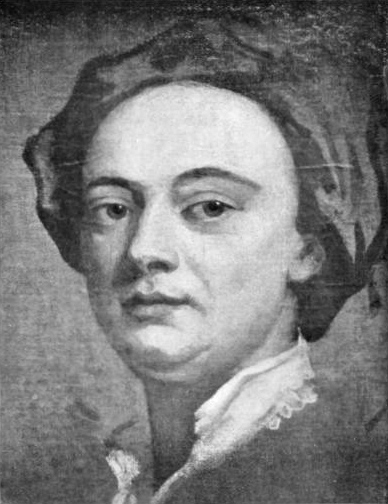John Gay (Q387487): Difference between revisions
Jump to navigation
Jump to search
Olaf Simons (talk | contribs) (Removed claim: Biographical notes (P173): Education: Barnstaple grammar school; did not attend university due to financial constraints; apprentice to the silk mercer John Willet in London) |
Olaf Simons (talk | contribs) (Removed claim: Biographical notes (P173): Patrons: William Pulteney (“it seems probable that Gay used the pseudonym James Baker to aid his new patron”) (DNB); the earl of Burlington; the earl of Warwick; duchess of Queensberry; Henrietta Howard) |
||
| Property / Biographical notes | |||
| Property / Biographical notes: Patrons: William Pulteney (“it seems probable that Gay used the pseudonym James Baker to aid his new patron”) (DNB); the earl of Burlington; the earl of Warwick; duchess of Queensberry; Henrietta Howard / rank | |||
| Property / Biographical notes: Patrons: William Pulteney (“it seems probable that Gay used the pseudonym James Baker to aid his new patron”) (DNB); the earl of Burlington; the earl of Warwick; duchess of Queensberry; Henrietta Howard / reference | |||
Revision as of 22:32, 26 November 2021
* 1685-06-30 Barnstaple, + 1732-12-04, English poet and playwright
| Language | Label | Description | Also known as |
|---|---|---|---|
| English | John Gay |
* 1685-06-30 Barnstaple, + 1732-12-04, English poet and playwright |
Statements
Coteries: Aaron Hill; William Fortescue; Scriblerus Club, 1714: Pope, Swift, John Arbuthnot, Thomas Parnell, and Lord Oxford; Lady Mary Wortley Montagu
Periodicals etc.: contributed to the British Apollo, ed. Aaron Hill and Marshall Smith, a promotional poem ‘To the learned ingenious Author of Licentia Poetica Discuss'd’; Miscellany, ed. Bernard Lintot (‘On a Miscellany of Poems’ and a translation of ‘The Story of Arachne’); the Guardian, ed. Steele (contributed part of the essay on an ‘Obsequium Catholicon’); Poetical Miscellany, ed. Steele (‘A Thought on Eternity’); anonymous tory satires in The Examiner
Overall: Gay was a poet/playwright and member of the Scriblerus Club. He had a rocky start, but his Poems on Several Occasions gained him a considerable amount wealth, which he invested and augmented. However, he lost much in the South Sea crash; thanks to Pope's intervention, Gay managed to secure over £400 for his original investment of £1000. Gay is an interesting case of an "uneducated," "working-class" man becoming a successful (though struggling) writer. Without any stable living arrangements, he ususally travelled as the guest of aristocratic friends, and continually sought (often in vain) court patronage until he was snubbed in 1727. From about 1726 on, Gay stopped writing light courtly verse, working instead on the major pieces that secured his reputation, most notably The Beggar's Opera. By 1724 he had achieved financial security anyway, with the publication of The Captives and his job as commissioner of the state lottery, though he had a reputation for financial irresponsibility. In 1731 he boasted to Swift that his fortune amounted to the vast amount of ‘above three thousand four hundred pounds.' From 1730 on he purportedly wrote for private satisfaction instead of public acclaim. He died with approximately £6000.
Sitelinks
Wikipedia(0 entries)
Wikinews(0 entries)
Wikiquote(0 entries)
Wikisource(0 entries)
Wikivoyage(0 entries)
Other sites(1 entry)
- wikidatawiki Q321660
